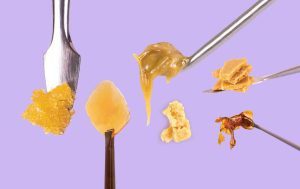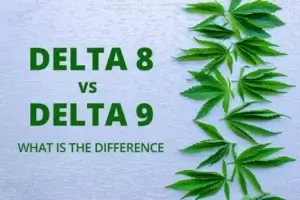Cannabis, known as ‘kenevir‘ in Turkish, has a complex legal status in Turkey. It is illegal for recreational use, but certain medical and scientific uses are permitted. The country’s relationship with cannabis has evolved over time, reflecting shifts in both domestic policy and international trends.
Cannabis is illegal for recreational use in Turkey, but it is allowed for limited medical and scientific purposes. The cultivation of marijuana is legal in 19 provinces in Turkey for medicinal and scientific purposes, and with permission, it can also be conducted in other provinces. In 2016, legislation was approved to allow the use of sublingual cannabinoid medications (such as Sativex) for use with a doctor’s prescription. However, the use of whole-plant cannabis remains illegal.
Cannabis consumption is considered taboo in Turkey, and it has a bad reputation among the Turkish public. Just 1.8% of the Turkish population aged 15 to 34 reported using cannabis in 2017. Low-income areas have higher cannabis usage rates, and there is an active black market supply of marijuana in the country. Istanbul and the Turkish city of Adana rank second and third in global cannabis consumption in a survey of select world cities.
Turkey is a traditional Muslim country that sees itself as the gatekeeper of the passageway between Europe and Asia, making the legalization of recreational marijuana use very unlikely anytime soon. However, President Erdogan’s initiative towards reviving hemp production and leniencies for medicinal CBD offer a glimmer of hope towards shifting attitudes regarding marijuana in Turkey.
Medical Use of Cannabis in Turkey
In 2016, Turkey approved legislation allowing the use of sublingual cannabinoid medications, such as Sativex, with a doctor’s prescription. However, the use of whole-plant cannabis remains illegal. This move marked a significant shift in policy, reflecting a growing global trend towards the acceptance of cannabis for therapeutic purposes.
Cultivation
The cultivation of marijuana is legal in 19 provinces in Turkey, but only for medicinal and scientific purposes. With special permission, cultivation can also be conducted in other provinces. In 2019, President Recep Tayyip Erdoğan suggested that Turkey might begin growing industrial hemp, highlighting its potential benefits in various sectors.
Demographics
Cannabis is the most popular illicit drug in Istanbul, according to sewage surveys examining drug metabolites in wastewater. It is the third most used psychoactive substance after alcohol and nicotine. Low-income neighborhoods have been noted to have higher rates of cannabis consumption. Istanbul has the second highest consumption rate of cannabis globally, after Barcelona, with Adana, another city in Turkey, following closely.
Enforcement
The consumption of any drug, including cannabis, is illegal in Turkey and requires a judicial process. Possessing, purchasing, or receiving any illegal drug is punishable by 1–2 years in prison, with the option of treatment and/or probation for up to three years. If users refuse treatment or do not comply with probation requirements, the courts can decide on sentencing. The sale and supply of cannabis are punishable by a prison term of 5–10 years, and production or trafficking by a minimum term of 10 years.
A Timeline of the History of Cannabis in Turkey
Early History
The use of cannabis in Turkey dates back to ancient times. The plant was used for various purposes, including medicinal, recreational, and industrial. It was a common crop grown by farmers and was used to produce textiles, paper, and rope. The medicinal properties of cannabis were also recognized, and it was used to treat a variety of ailments.
Late 19th Century to Early 20th Century
During the late 19th and early 20th centuries, the use of cannabis started to be viewed negatively due to its psychoactive effects. This shift in perception was influenced by global trends, particularly in Western countries, where cannabis was increasingly associated with crime and immorality. In response to these concerns, the Turkish government began to regulate the cultivation and use of cannabis.
1925
In 1925, Turkey signed the Geneva International Convention on Narcotics Control, which aimed to control the spread of addictive drugs, including cannabis. This marked a significant turning point in the country’s approach to cannabis. Following the convention, the cultivation, sale, and use of cannabis were heavily restricted in Turkey.
1961
In 1961, Turkey ratified the Single Convention on Narcotic Drugs, an international treaty to prohibit production and supply of specific drugs and of drugs with similar effects except under license for specific purposes, such as medical treatment and research. This further solidified the country’s stance against cannabis.
1970s to 1990s
During the 1970s to 1990s, Turkey’s anti-cannabis laws were strictly enforced. The cultivation, sale, and use of cannabis were considered serious crimes, punishable by long prison sentences. This period saw a significant decrease in the cultivation of cannabis in the country.
2000s
In the 2000s, there was a shift in global attitudes towards cannabis, with many countries decriminalizing or legalizing its use for medicinal purposes. However, Turkey maintained its strict anti-cannabis laws during this period.
2016
In 2016, Turkey legalized the controlled production of cannabis in 19 provinces for medicinal and scientific purposes. This was a significant step towards the relaxation of the country’s anti-cannabis laws. The move was motivated by the potential economic benefits of cannabis production and the growing global acceptance of its medicinal use.
2019
In 2019, the Turkish government expanded the controlled production of cannabis to additional provinces. The government also announced plans to encourage the use of cannabis for industrial purposes, such as the production of textiles and construction materials.
2023
As of 2023, the cultivation and use of cannabis for medicinal and scientific purposes are legal in Turkey under controlled conditions. However, the recreational use of cannabis remains illegal.
The history and legality of cannabis in Turkey is a complex issue, reflecting the country’s ongoing struggle to balance public health concerns, law enforcement priorities, and shifting societal attitudes towards drug use. As the global conversation around cannabis continues to evolve, it remains to be seen how Turkey’s policies will change in response.






